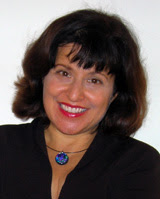Have you ever found yourself wandering in the (metaphorical) dark woods? Afterwards, did you discover that all the twists and turns and scrapes had a purpose? These glimpses of insight are a blessing to me—and often feel spooky at the time. In those fleeting moments I discover my own Hero’s Journey—the mono-myth Joseph Campbell explained to the world.
My adventure has taken me down many different paths (playwriting and directing, public speaking, teaching, writing, and massage). Surprisingly, each one has converged in this new space.
Over a year ago, I immersed myself in Jungian psychology (described in January 08 article). Meanwhile, I began a new career pursuit (see article above)--exploring corporate training. Within that quest, I discovered corporate storytelling and the spooky moment mentioned above.
Today, my interests can still feel worlds apart. But even if I don’t understand how writing tales converges with presenting training in “Time Management,” I am compelled to follow my Muse down this path. I love using the Brothers Grimm fairy tales as a meditative koan for my day and also as a structure for writing new stories.
Amazingly, it was weeks into this new project when I suddenly recalled that my favorite Jungian author—Maria Louise Von Franz (I’ve read just about everything she has written)—was primarily known for her work with fairy tales.
Reading today’s story—The Three Languages—reminds me of Von Franz’s work. My own interpretation (below) comes from what I learned from her. This is the first time I'm offering any interpretation. The stories below, on early posts, don't have any analysis. Feel free to offer your own thoughts and opinions on those stories (and this one too).
Before reading on, (spoiler alert--my interpretation of the story follows this paragraph) perhaps you want to read "The Three Languages" from the link above? Then you can come up with your own interpretation before you read mine.
Here are my thoughts on the this classic tale.
We begin with a father who thinks his son is stupid. The child is not at all like his father. Is Dad a businessman who has an artistic, daydreaming child?
The father is determined to make the son more like himself. He sends him off to school three times and the boy comes back educated—but not in an area the father values. The son learns to listen to nature both within and outside himself--- the language of dogs, birds, and frogs. He learns to discern his own instinctual self--who he is as an individual. He learns to hear his deepest self, what he needs and values.
The father is so enraged by the son’s independence and new values that he disowns him.
But the story makes clear that following one’s own inner voice is well worth the sacrifice. The son is able to bring healing to others (freeing the town and then becoming Pope), and wealth to himself, represented by the treasure and the marriage (also a sign of the integration of masculine and feminine within the Self).
What are the instinctual voices, gut feelings, or intuitions in ourselves that we need to notice today?
Tuesday, January 8, 2008
The Three Languages
Labels:
contemporary Brothers Grimm
Subscribe to:
Post Comments (Atom)


1 comment:
Yes. I like the interpretation. Here's the dream I had last night. Dreamt I could fly but no one, especially my boyfriend--Jude Law (what do you make of that?), no one believed me. Then I couldn't fly. A warning?
Post a Comment